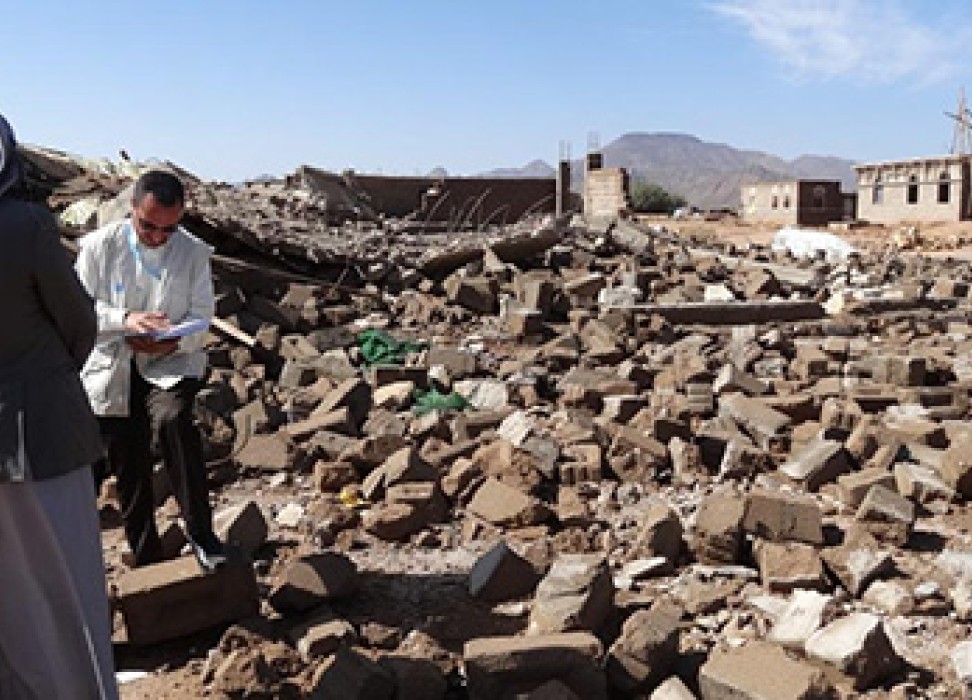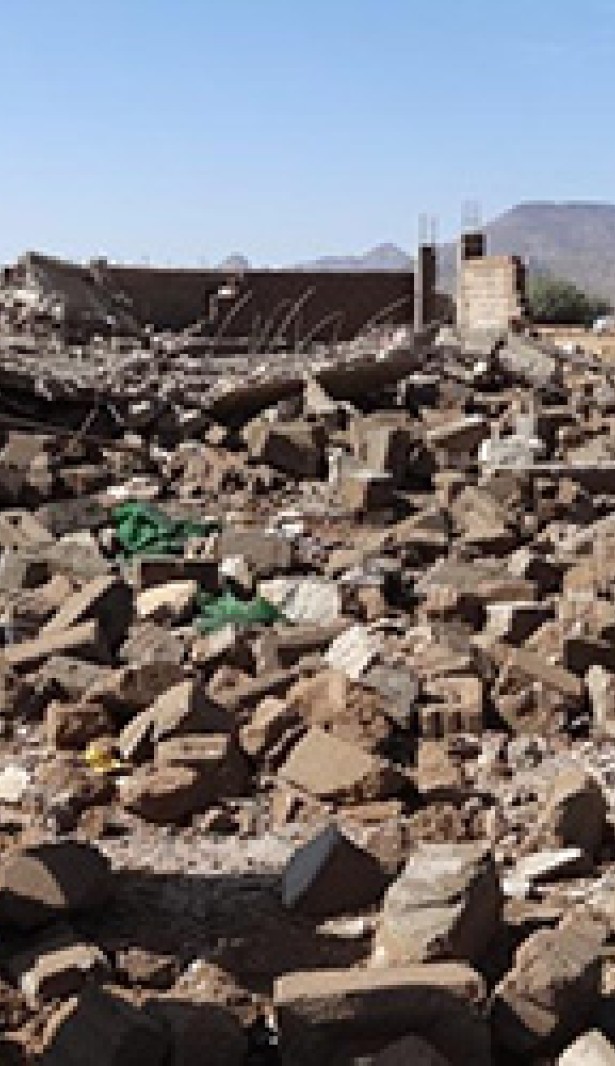Thirteen civilian casualties a day in Yemen conflict
25 August 2016

An estimated 3,799 civilians have died since March 2015 in the escalating conflict in Yemen. At least 7.6 million people, including three million women and children, are currently suffering from malnutrition and at least three million people have been forced to flee their homes.
Casualties have been documented by a UN Human Rights team deployed by the UN Human Rights Council to technically assist the national commission of inquiry in Yemen. The commission has been facing challenges in carrying out its investigations.
Used as a basis for a new report which covers the period from 1 July 2015 to 31 June 2016, testimonies of victims and witnesses received by the UN Human Rights Office describe allegations of recurrent attacks against civilians. The regions of Taizz, Am Al Asimah and Aden are said to be the worst affected by the use of cluster bombs and landmines; sniper and drone attacks against civilians; and the striking of public and private infrastructure such as residential buildings, medical and educational facilities, and marketplaces.
Other violations of international law include the deprivation of liberty; targeted killings; and forced evictions and displacement.
Most casualties are attributed to the main parties in the conflict - the Coalition Forces loyal to President Abd Rabbo Mansour Hadi, which are fighting against the Popular Committees affiliated with the Houtis and army units loyal to former President Ali Abdullah Saleh. Ground and air strikes have also caused damage to public and private infrastructure, and hindered the provision of vital humanitarian relief to the populations affected.
The report points out that the two-year conflict in Yemen has created security vacuums that are being exploited by armed groups affiliated with Al-Qaida’s local branch, Ansar al-Sharia, and the so-called Islamic state in Iraq and the Levant. Both groups have carried out attacks on religious and cultural sites that benefit from special protection under international law.
Since August 2015, a blockade imposed by the Popular Committees in Taizz has caused the near collapse of the health system; all six public hospitals are no longer operational and private hospitals are overwhelmed with the needs of those injured during the fighting.
Further, restrictions on air and land travel continue, as well as a naval blockade imposed by the coalition forces. Limitations on the importation of vital goods have resulted in the lack of fuel for water-pumping stations, hospitals and homes, and a shortage of medicine. In areas controlled by Houthi and Saleh-aligned forces, humanitarian agencies are frequently denied access and aid flows to the populations have been halted.
The situation of children remains a major concern: information received by the UN Human rights Office indicates 559 cases of children recruited by parties to the conflict and used during hostilities. Most allegations attribute these violations to the Popular Committees in the Sana’a Governorate.
The conflict has also forced some 560,000 out of school, raising the total number of school-age children out of school in Yemen to 2.2 million. During the 2015/2016 school year, UNICEF reported 1,600 school closures across the country.
Internally displaced women report various forms of ill-treatment, including torture and rape. In February 2016, a UN Human Rights monitor visited the women’s central prison in Sana’a currently under the control of the Popular Committees. Four victims said they had been blindfolded during their capture and taken to an unidentified location where they had allegedly been subjected to electric shocks and accused by the Popular Committees of being prostitutes. In July 2015, a visit to Thawra hospital in Sana’a revealed the case of a 10 year-old girl who was admitted for injuries sustained after being raped while going to the local grocery store.
Other groups of population are being targeted during military operations including journalists, human rights defenders, and individuals affiliated with political parties such as the Islah Party, the Socialist and the Nasserist Unionist People’s Organization. Religious leaders including Sunni Imams and a Jewish Rabbi; as well as academics, students and civil society representatives affiliated with the Islah Party are also targets.
UN Human Rights Chief, Zeid Ra’ad Al Hussein, called on all parties to the conflict to cease hostilities and reach a negotiated and durable solution to the conflict in the best interest of the Yemeni people. He also urged the international community to establish an international, independent body to carry out comprehensive investigations.
“Civilians in Yemen have suffered unbearably over the years from the effects of a number of simultaneous and overlapping armed conflicts,” Zeid said. “And they continue to suffer, absent any form of accountability and justice, while those responsible for the violations and abuses against them enjoy impunity. Such a manifestly, protractedly unjust situation must no longer be tolerated by the international community.”
25 August 2016

